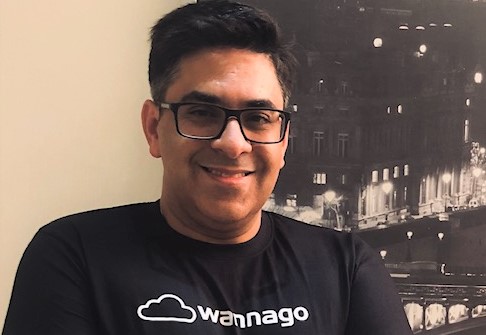Businesses need to switch from Capex to Opex model when investing in cloud
Dubai-based WannaGo, targeting SMEs and mid corporates, is seeing a rise in regional demand for private cloud services

Cloud technology is a “must-have” option and it is no more an “add-on” feature and businesses need to switch from Capex (capital expenditure) to Opex (operating expenditure) model, Founder of a Dubai-headquartered startup said.
Speaking to TechRadar Pro Middle East, Deepak Verma, CEO and Founder of WannaGo Cloud, said that shortage of deployment skills in the region due to advancing technologies is a major issue and so, having access to a reliable back-up, a scalable IT infrastructure and protection against cyberattacks is a requisite for any business that wants to flourish in the digitised world.
“The realisation of work from home has become a reality in the region. Before Covid, it was about 15% and now, it is 70%. If you call a customer for a Zoom meeting before Covid, he would say no and prefers face-to-face meeting. The telcos have done a great job by allowing work-from-home culture to grow and they have opened the backend, which was blocked for a long time,” he said.
Started in 2016, WannaGo provides fully managed private cloud services.
“The future is cloud-centric and we want to play a big role in it and add value to customers,” Verma said.
“We went with the idea of digital disruption in 2016 but customers were not ready to move to the cloud and preferred on-premises instead. Our view was the opposite of that. If you move to the cloud, it gives you more security and flexibility to grow and the pay-as-you-go options enable a more flexible and scalable IT infrastructure,” he said.
He said that they went back to the drawing board and came out with a bunch of services targeted at three core areas – infrastructure, backup and security.
Are you a pro? Subscribe to our newsletter
Sign up to the TechRadar Pro newsletter to get all the top news, opinion, features and guidance your business needs to succeed!
“We targeted SMEs and mid corporates in the region, which represents 95% of all customer segments, and it became a success in 2017. We launched seven services in a phased manner - backup as a service, disaster recovery as a service, firewall as a service, archival as a service, security as a service, infrastructure as a service and renewals as a service,” he said.
These services had backers, he said and customers understood and felt that their jobs were not threatened in any way.
There is room for all players
WannaGo Cloud has 230 customers in the GCC and out of that, 200 customers are from the UAE who spends between AED 4,000 and AED 300,000 per year.
“We work with internet service providers, global system integrators and independent software vendors,” Verma said.
Kalaam Telecom, a managed solutions provider in Bahrain, came on board, he said and added that it has been a successful journey after that.
The other collaborative partners are India’s 3i Infotech, IGA MetaValue and DVCom Technology and Kuwait’s Tawasul Telecom.
In terms of competition, he said the region represents over 3,000 traditional system integrators owning 75-250 customer relationships and product distributors, who are trying to address the changing customer patterns.
“There is a place for big players such as Microsoft, Amazon and Google, as well as private cloud players like us. For example, small groceries still survive in the world of big hypermarkets,” Verma said.
WannaGo has two data centres at Equinix and eHosting Datafort in UAE, one in Mumbai, India, and the Saudi one will go live in the third quarter of this year.
In the next 18 months, Verma hopes to have four data centres in the GCC, three in India, two in Asia, at least two in Africa and one in Europe and attract 40 channel partners from the current nine partners.
“We aim to be a trusted advisor by providing real-time guidance and help companies to provision resources, reduce cost, increase performance and improve security,” he said.
WannaGo aims to acquire more than 2,000 customers over the next three years.
“The growth is happening in the infrastructure and security services with an addressable market of more than 500,000 customers in the region. We now have moved our needle to the next level that is to grow globally. We are planning to offer content delivery management (CDNs) as e-commerce, retail and OTT are growing,” he said.
Among the 300,000 SMEs in the UAE, he said that only 10% have digitally transformed but cloud computing is gaining traction in the region and post-Covid, it is set to grow further.
“We are heading towards a future where data, analytics and smart insights will be the most priced assets of a business and give them an edge over the competition,” Verma said.
The startup has raised $2.5m in Seed funding and looking to raise $2m.
“The cash will be used to expand its distribution strategy, R&D team expansion and bring in a new set of products,” he said.